Mayo Clinic Health Matters
Brushing Your Way to Better Health: How Oral and Dental Health Go Beyond the Mouth
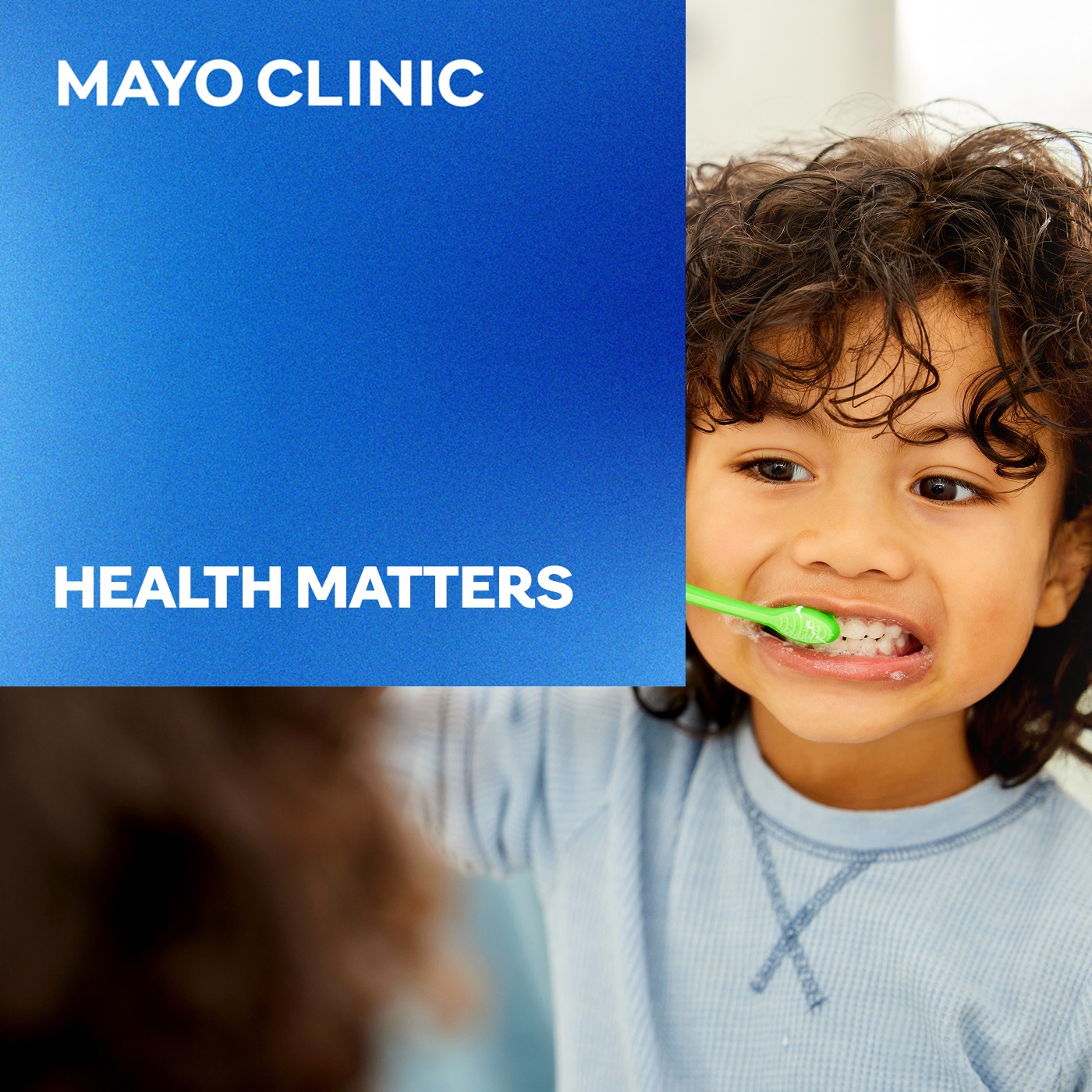
We all want a bright set of pearly whites, but teeth are more than what meets the eye. Your mouth and teeth serve as gatekeepers for your body, helping protect your heart, lungs and other organs from bacteria, pathogens and disease.
On this episode of Health Matters, we talk with Dr. Sarah Lee, a prosthodontist, about how oral health and overall health go hand in hand — and how to optimize your dental hygiene routine.
Sign up to receive Mayo Clinic Press emails.
Find us online at Mayo Clinic Press for more health and wellnes...
Attack of the Pickleball Elbow: Treating Sports Injuries

Tennis elbow, golfer’s elbow, Little League elbow — and now, even pickleball elbow.
Staying active has countless benefits, but sports can be tough on your tendons. And you don’t have to be an athlete to end up with a “sports injury.” So, what are the early signs to watch for, and how can you prevent injury in the first place? Is there anything you can do to speed up recovery?
On this episode of Health Matters, Dr. Christopher Camp joins us to share expert advice on keeping your elbows and shoulders safe — whether you're on the court...
Under Pressure: How to Lower High Blood Pressure
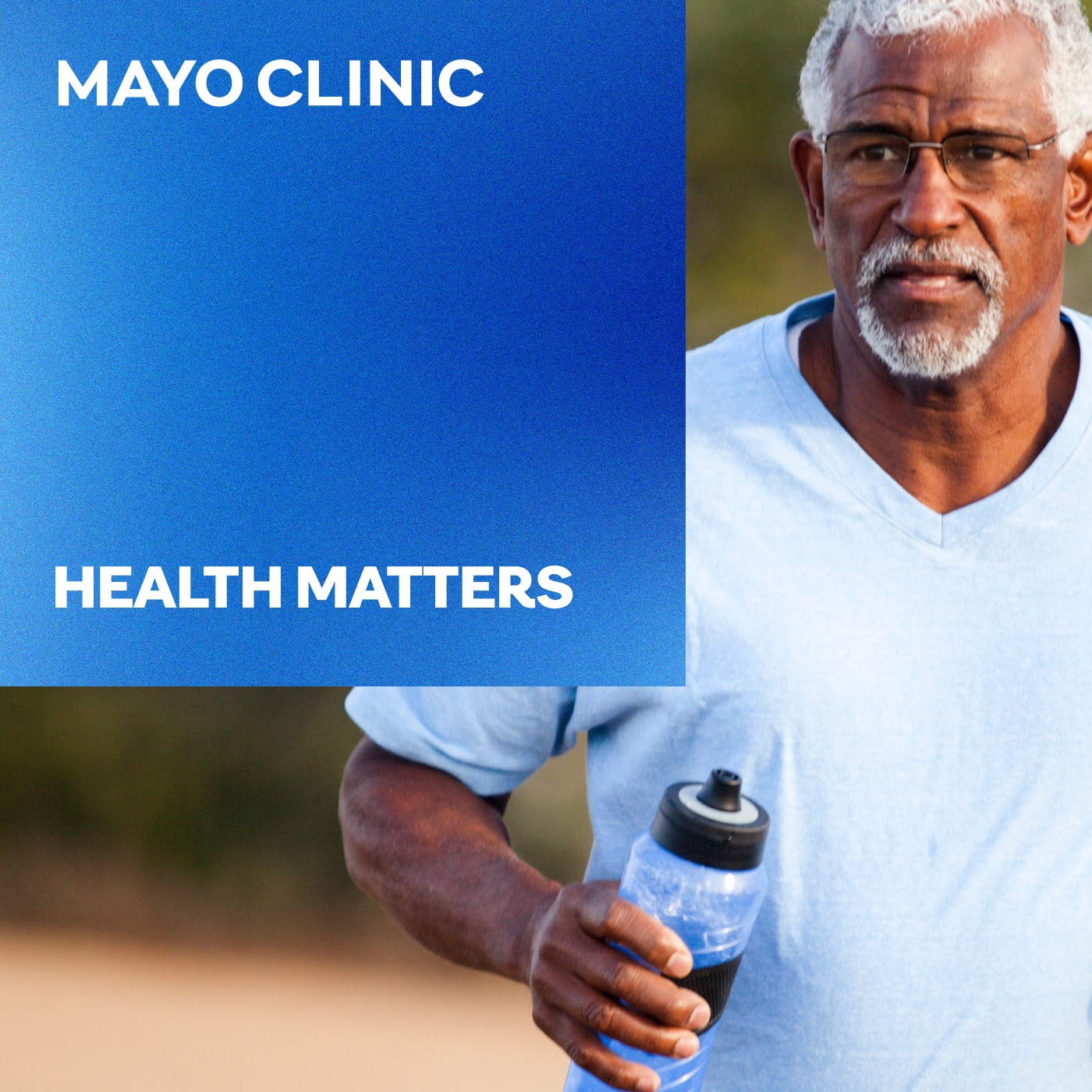
Nearly half of American adults have high blood pressure—many without even realizing it. So what do those two numbers really mean for your health? And is your high blood pressure preventable, treatable... or even reversible?
On this episode of Health Matters, we're talking with Dr. Gary Schwartz about hypertension, how to get your numbers within range, and whether you should be measuring your blood pressure at home.
For more information on blood pressure device validation and accuracy, check out validatebp.org.
Advertising Inquiries: https://redcircle.com/brands
Privacy & Opt-Out: ht...
Do's and Don'ts for Keeping Your Microbiome Healthy
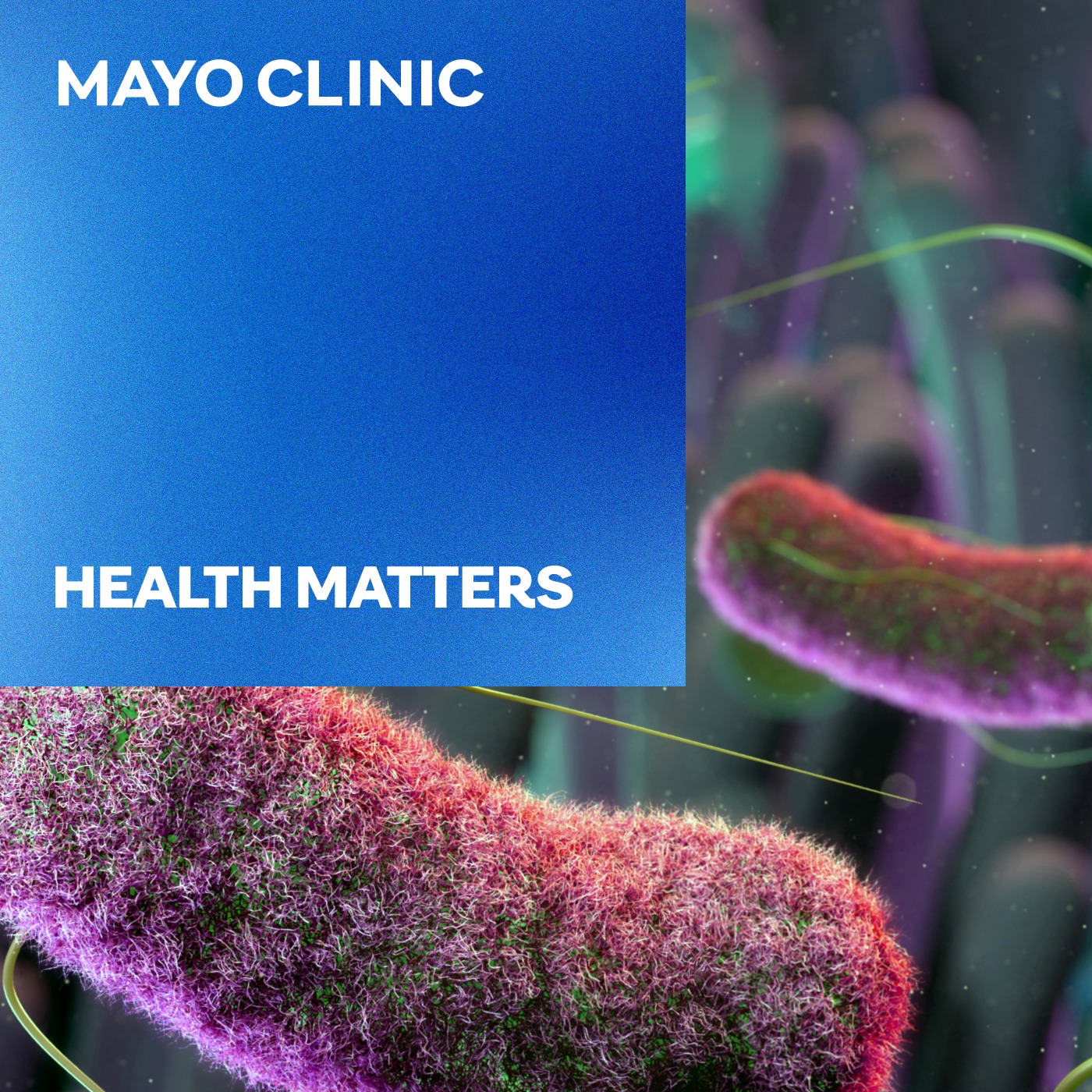
Your colon is more than a pit stop for waste — it houses a lush, thriving ecosystem of bacteria, viruses, fungi and parasites. These organisms affect everything from your digestion to your immune system — and maybe even your mental health. So how can we harness the power of the gut microbiome? And when it comes to “gut-healthy” diets and products, who should you believe?
On this episode of Health Matters, we talk with Dr. Sahil Khanna about the care and keeping of your gut microbiome — and the exciting potential of microbiota-based therapies.
Sign up to receive Mayo Clini...
There's Over 200 Types of Headaches: Which One Do You Have?
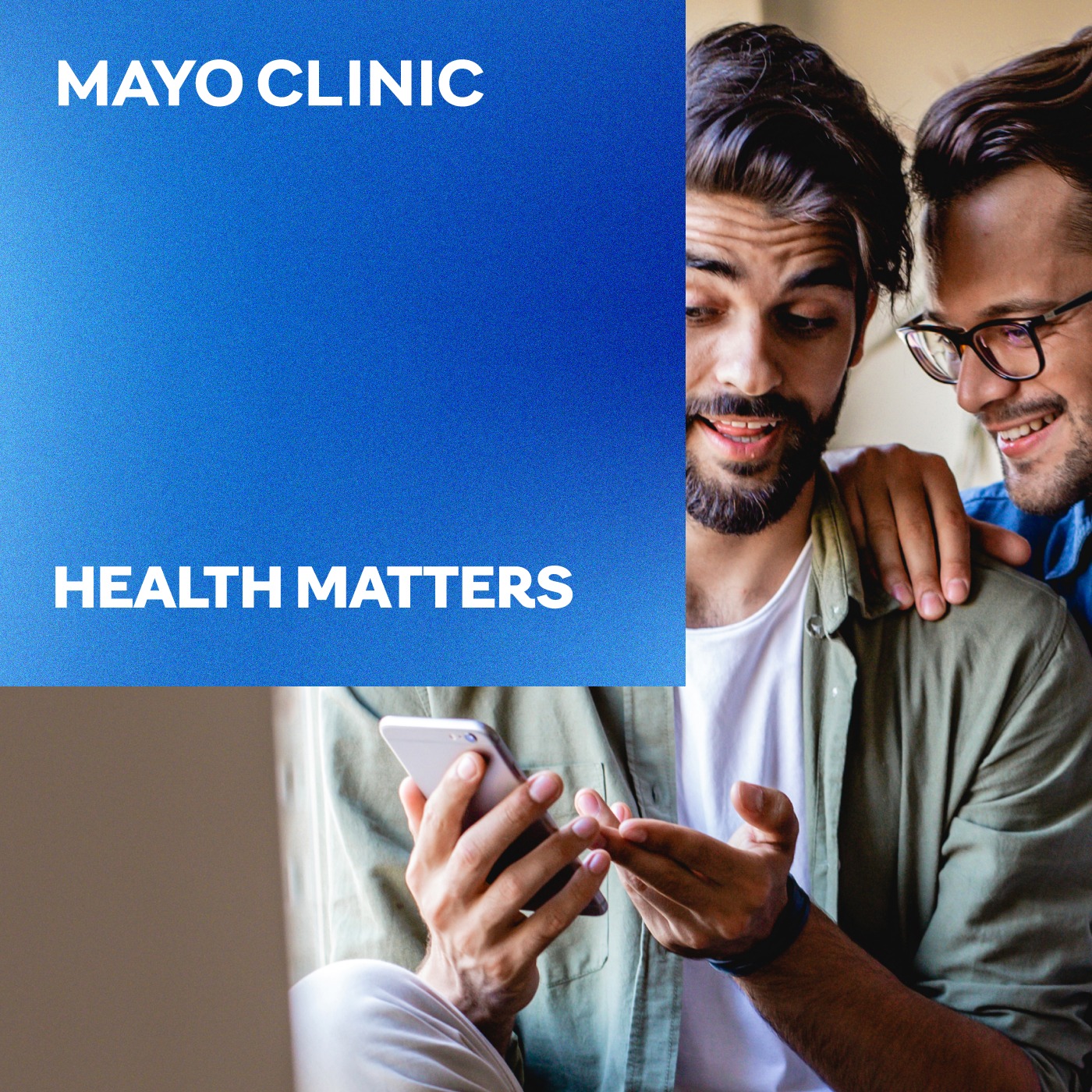
Nearly everyone experiences a headache at some point in life, but not all headaches are created equal. They can have different causes, pain levels and effects on your daily functioning.
In this episode of Health Matters, we’re talking with neurologist Dr. Amaal Starling. She takes us on a tour of the world of headaches — from nursing a garden-variety tension headache to being plagued by migraines.
Sign up to receive Mayo Clinic Press emails.
Find us online at Mayo Clinic Press for more health and wellness articles, podcasts and books.
Do you...
Ovarian Cancer: Know Your Risk and How to Reduce It
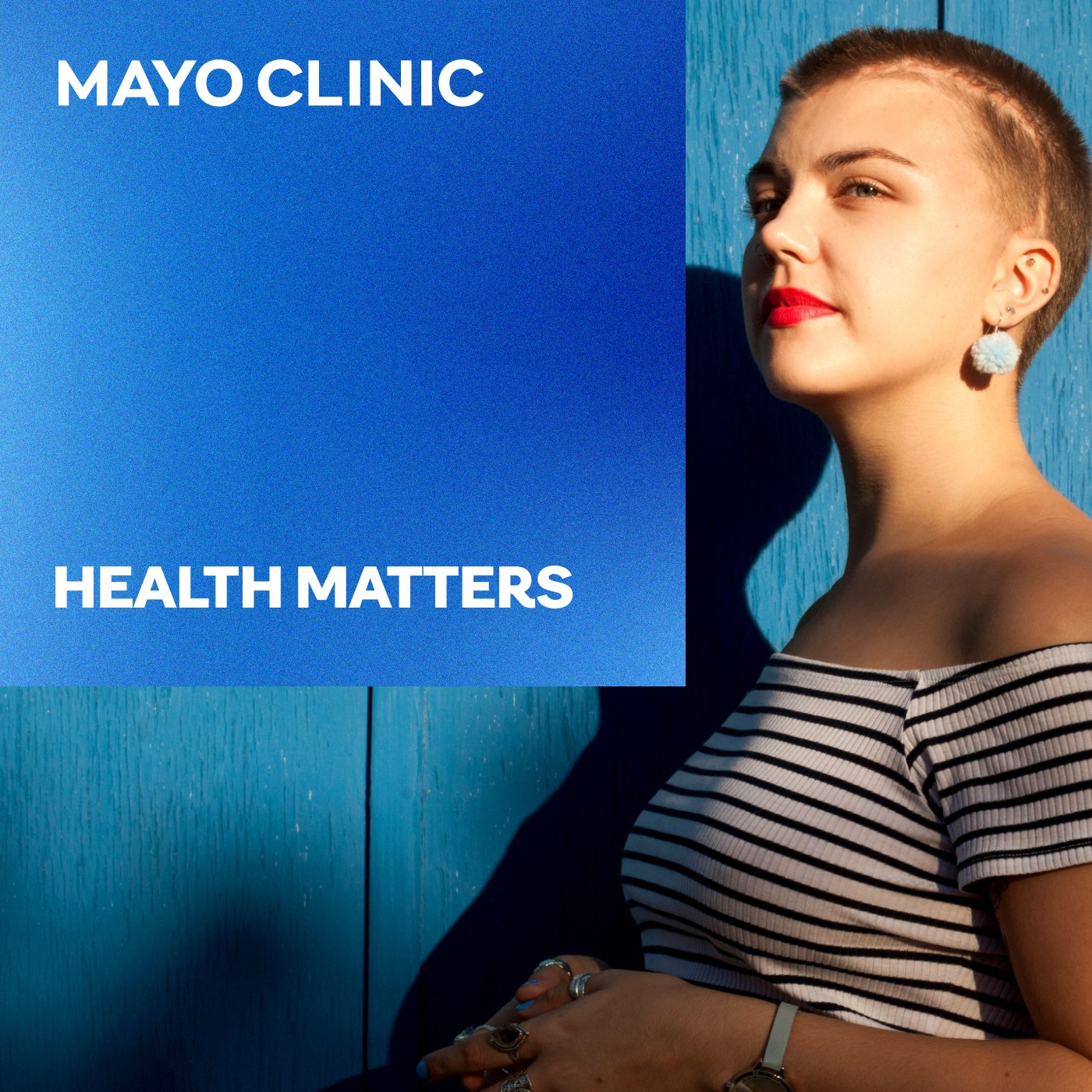
Ovarian cancer may not be the most common or talked-about cancer, but like any major disease, it can turn your life upside down. While the risk of developing ovarian cancer is comparatively lower, it’s harder to detect — there’s no reliable way to screen for it, and early symptoms can be vague. Still, some dedicate their careers to advancing its treatment.
On this episode of Health Matters, we talk with one such person: Dr. Marion Curtis, whose groundbreaking research is changing the landscape of ovarian cancer treatment.
Sign up to receive Mayo Clinic Press emails...
Yes, You Actually Do Need Vaccines, Part 2
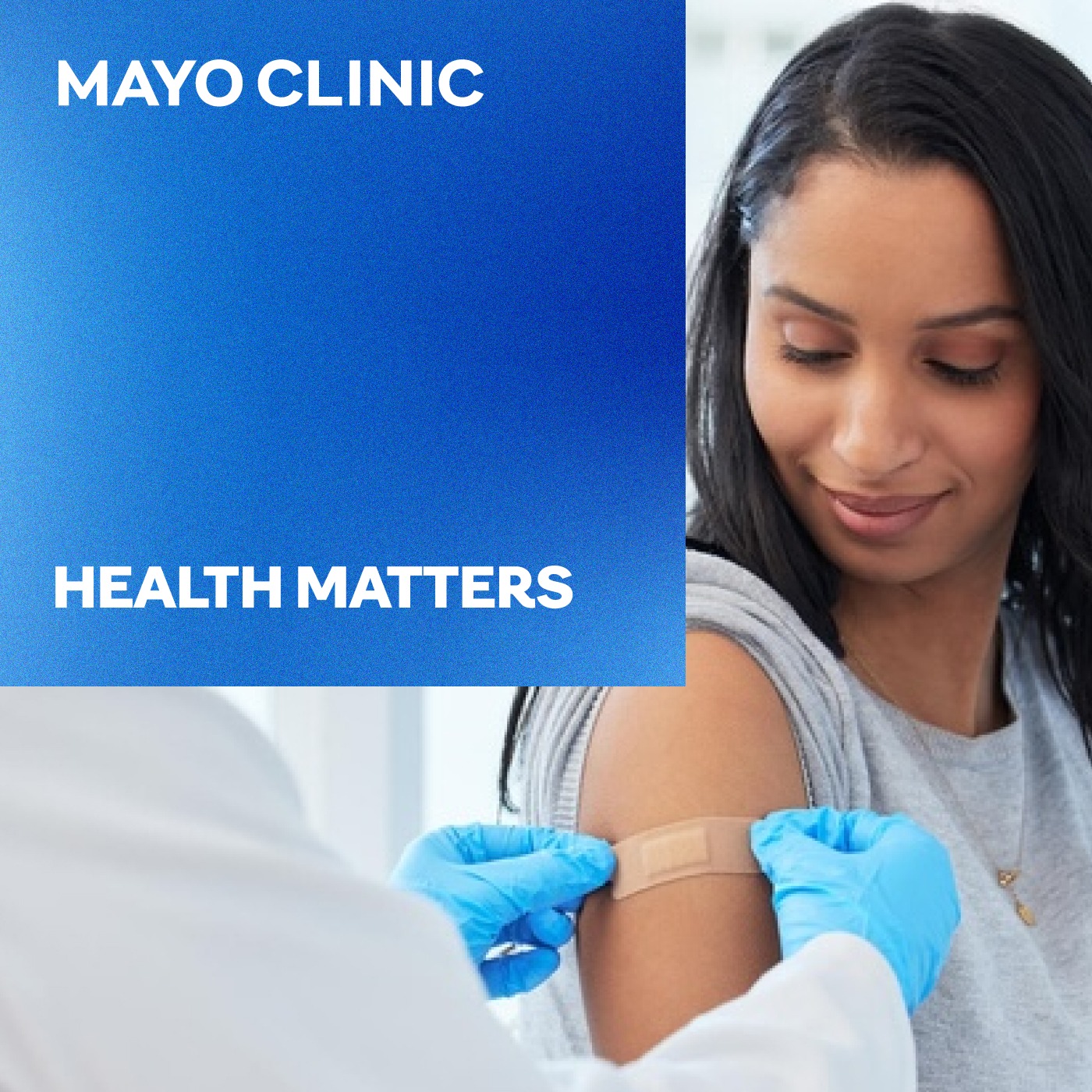
We're back for a second installment of the Vaccines episode, digging further into vaccines and dispelling misinformation about them.
On this episode of Health Matters, Dr. Gregory Poland returns to explain why women have better immune responses to viral vaccines than men, how "natural infection" is NOT safer than vaccines, and what the future of vaccines looks like.
Sign up to receive Mayo Clinic Press emails.
Find us online at Mayo Clinic Press for more health and wellness articles, podcasts and books.
Do you have feedback, questions or topic suggestions? Email us...
Yes, You Actually Do Need Vaccines
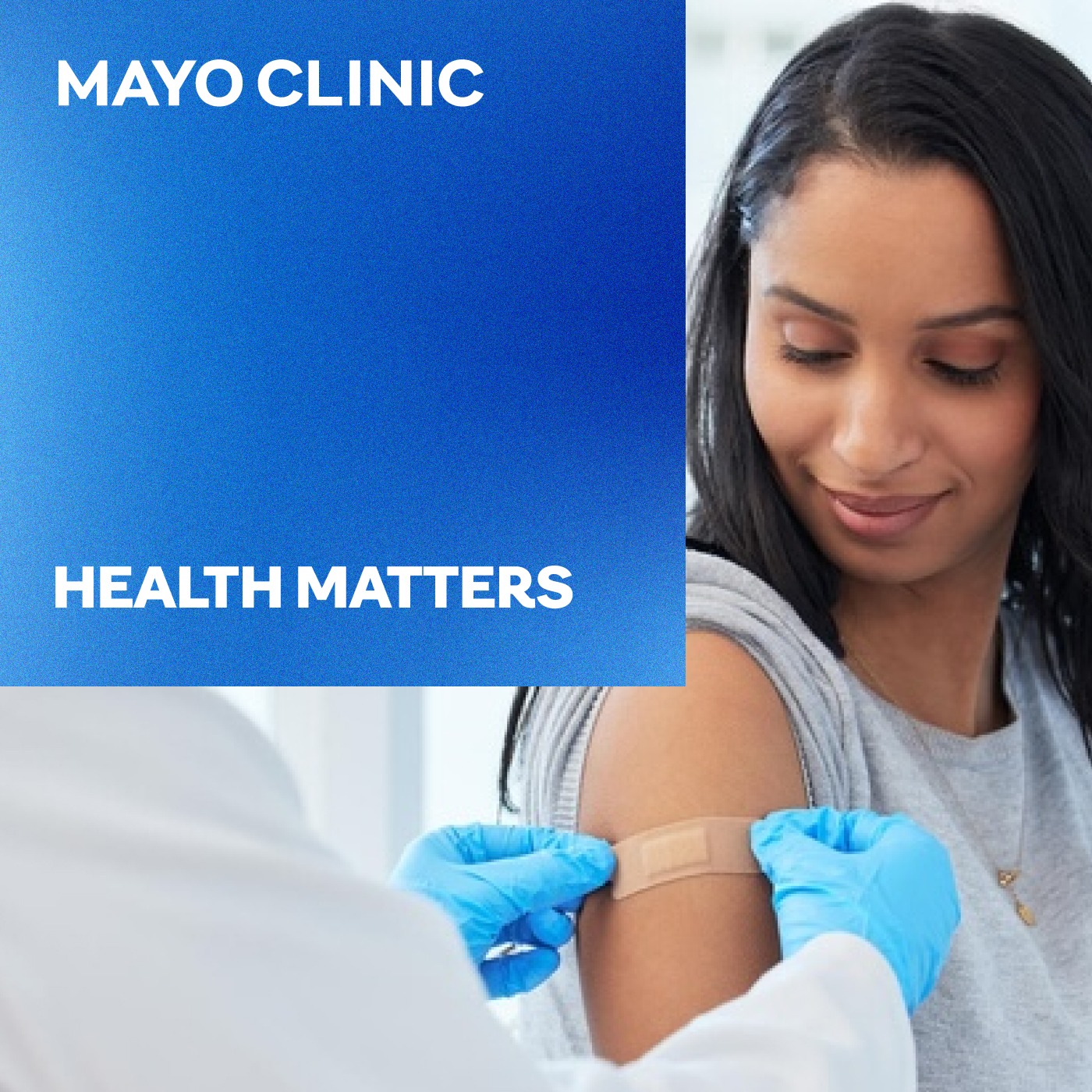
No one likes being poked with a needle, but it’s way better than getting seriously sick. It can be hard to stay up to date with all your vaccinations, though: There’s a new COVID vaccine every year, the new RSV vaccine in 2023, and... when was the last time you got a tetanus booster?
On this episode of Health Matters, Dr. Gregory Poland explains how vaccines are made, what a world without them would look like, and how getting a vaccine is safer than driving a car.
Sign up to receive Mayo Clinic Press emai...
Thriving with HIV: Everything You've Missed Since the '90s
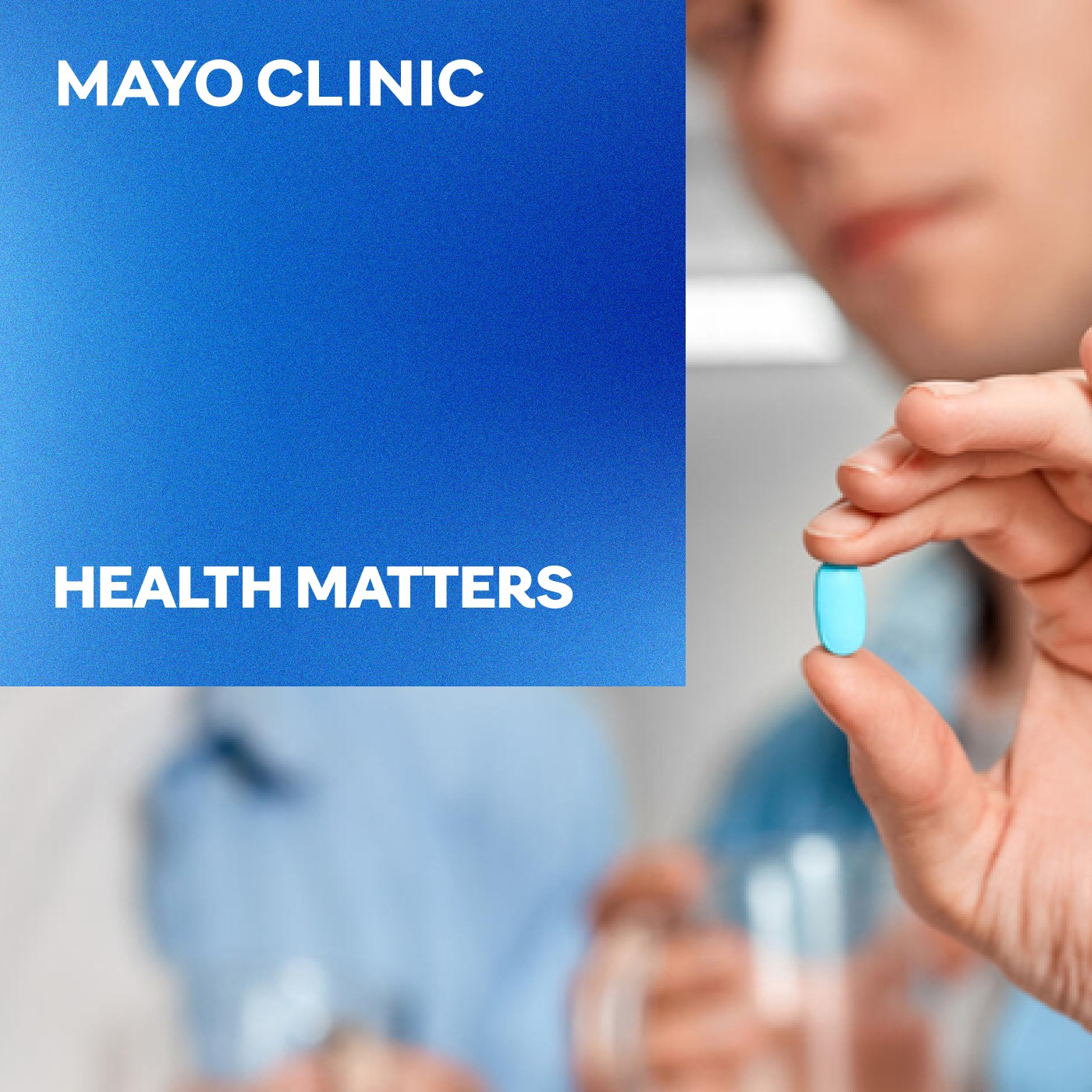
More people are living with HIV than ever before. And no, it's not because transmission rates have spiked. It's because people who are HIV positive are living longer, healthier lives—a radical change from decades past.
On this episode of Health Matters, we're celebrating how far we've come with Dr. Maryam Mahmood, and learning more about HIV looks like today.
Sign up to receive Mayo Clinic Press emails.
Find us online at Mayo Clinic Press for more health and wellness articles, podcasts and books.
Do you have feedback, questions or topic sugges...
Gland Central: Understanding the Thyroid
Roughly 20 million Americans already have some form of a thyroid issue. And it's estimated that over half of them... are completely unaware of it.
On this episode of Health Matters, Dr. Mabel Ryder breaks down the thyroid's important role in the body and how it affects all organs — and what happens when it's not functioning optimally.
Sign up to receive Mayo Clinic Press emails.
Find us online at Mayo Clinic Press for more health and wellness articles, podcasts and books.
Do you have feedback, questions or topic suggestions? Email us at mcppodc...
When Good Food Goes Bad: How to Protect Yourself from Food Poisoning
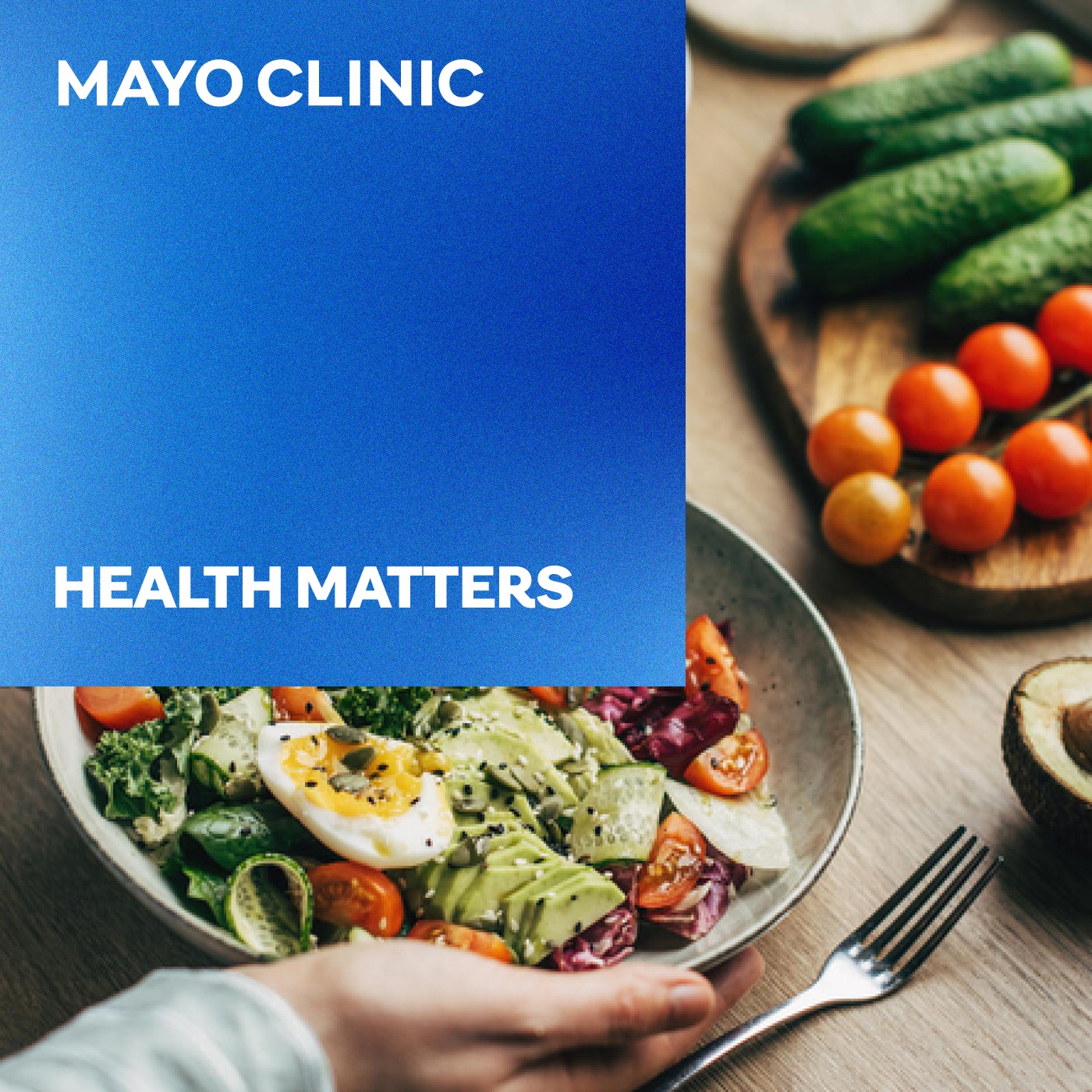
Most people know not to eat the potato salad that’s been sitting on the picnic table for 8 hours. But what about leftover takeout, raw cookie dough, or produce and meat recalls? Is your gurgling stomach a herald of doom? On this episode of Health Matters, we talk with Dr. Christine Ragay-Cathers about what happens when food goes bad, common culprits, and how to keep your stomach safe.
Sign up to receive Mayo Clinic Press emails.
Find us online at Mayo Clinic Press for more health and wellness articles, podcasts and books.
Do you hav...
Vital Outdoor First-Aid Lessons Before the Big Hike: Medical Best Practices That Could Save Your Life
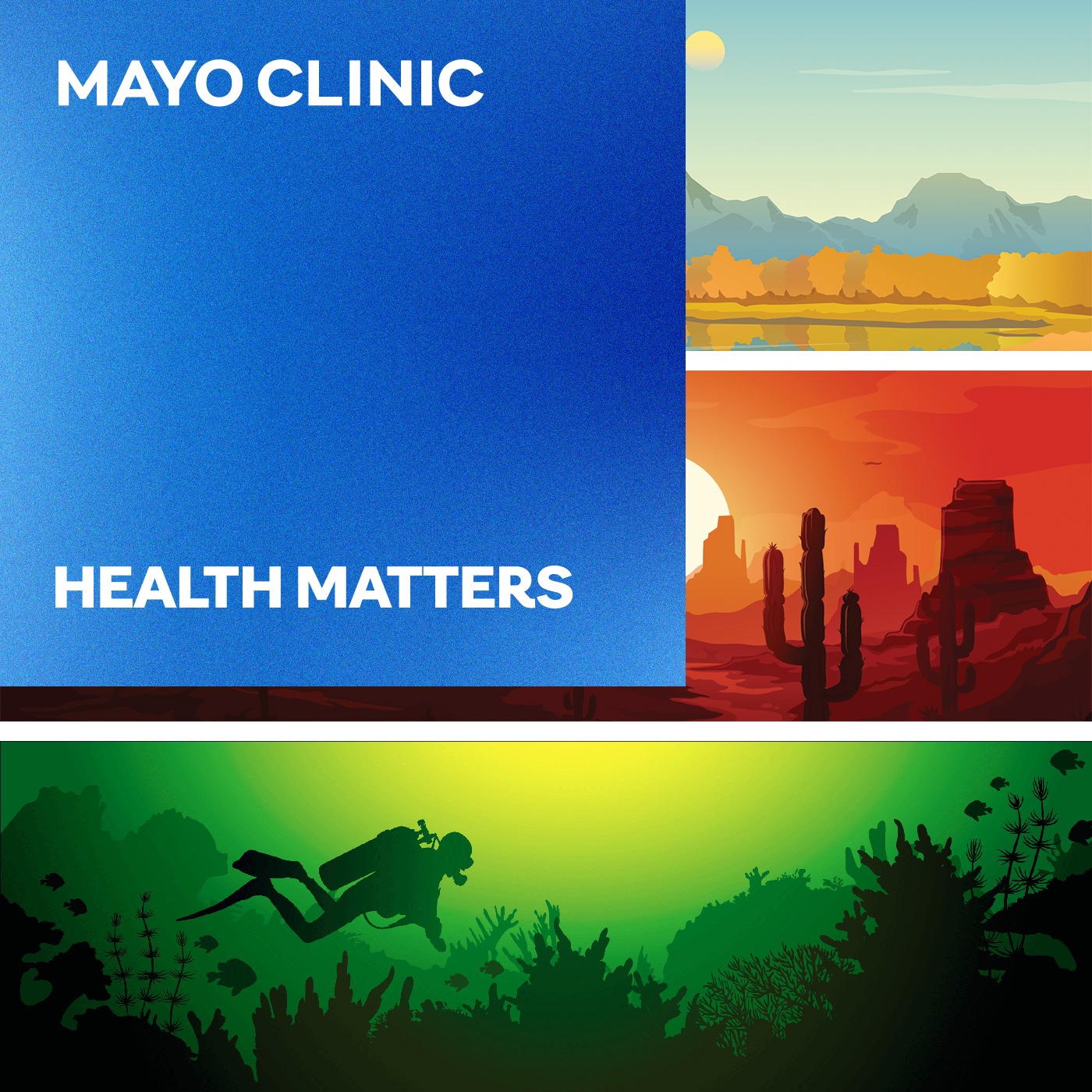
The sun on your face, the wind in your hair, the earth crunching under your boots… what’s not to love? Well, maybe blisters. Or spider bites. Or a sprained ankle. Actually, a lot of things can go wrong in nature. But with preparation, you can make good decisions and take in all the benefits fresh air has to offer. This episode, we’re joined by Dr. Neha Raukar to talk about outdoor first aid—what to do if something goes wrong, and how to prevent it from going wrong in the first place.
Purchase Dr. Raukar's book, Ma...
The Mental Health Conversation Your Primary Team Wishes You Would Have
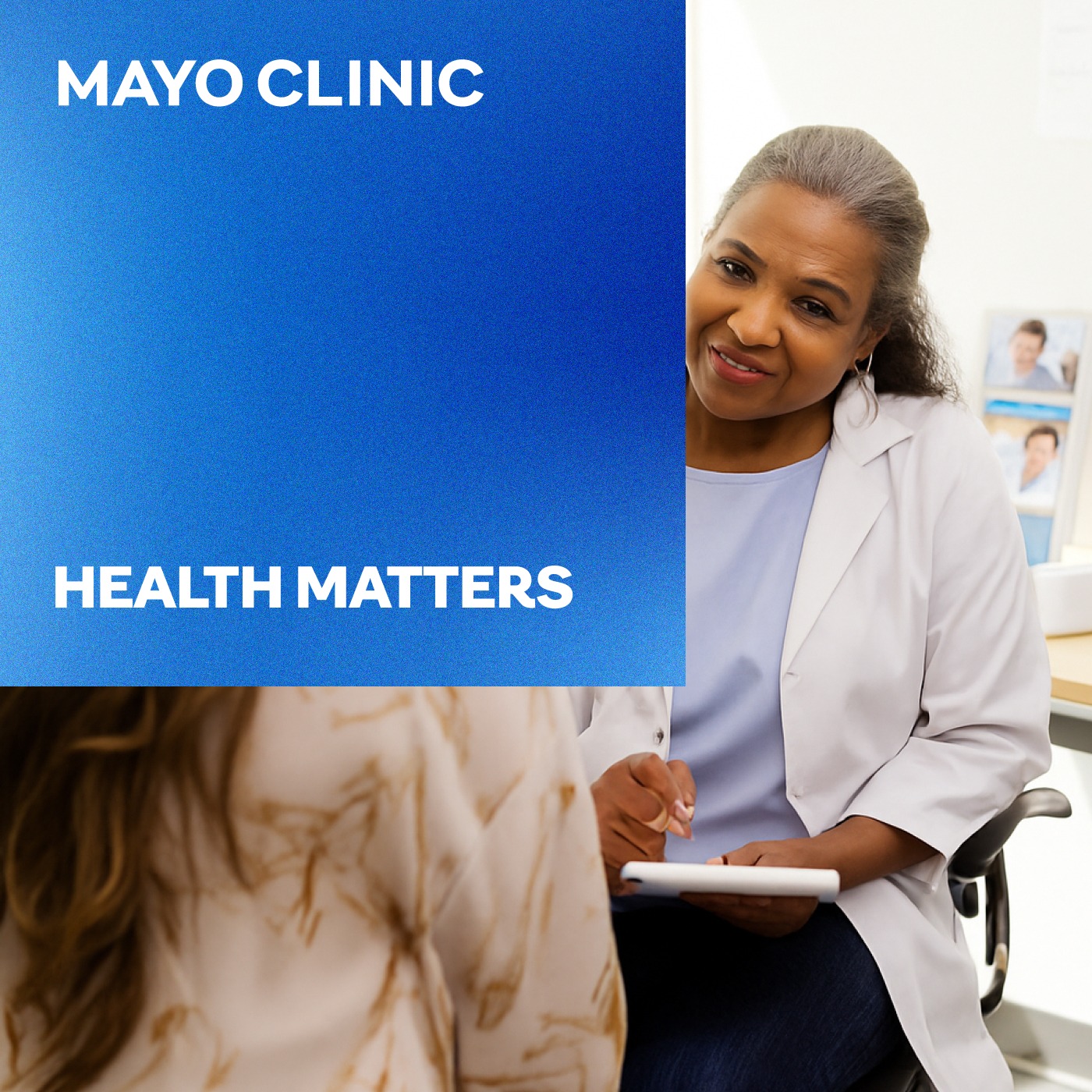
You probably know that modern mental health care doesn’t mean lying down on a couch and looking at ink blots. But you might not realize that for many folks, mental health care starts in primary care. Your primary care physician could be your first—and maybe only—stop on your way to mental wellness.
On this episode of Health Matters, we talk with Dr. Jen Brull, a family physician and the president of the American Academy of Family Physicians, about how to start that conversation with your primary care team, what they can and can’t treat, a...
BONUS EPISODE: Face in the Mirror
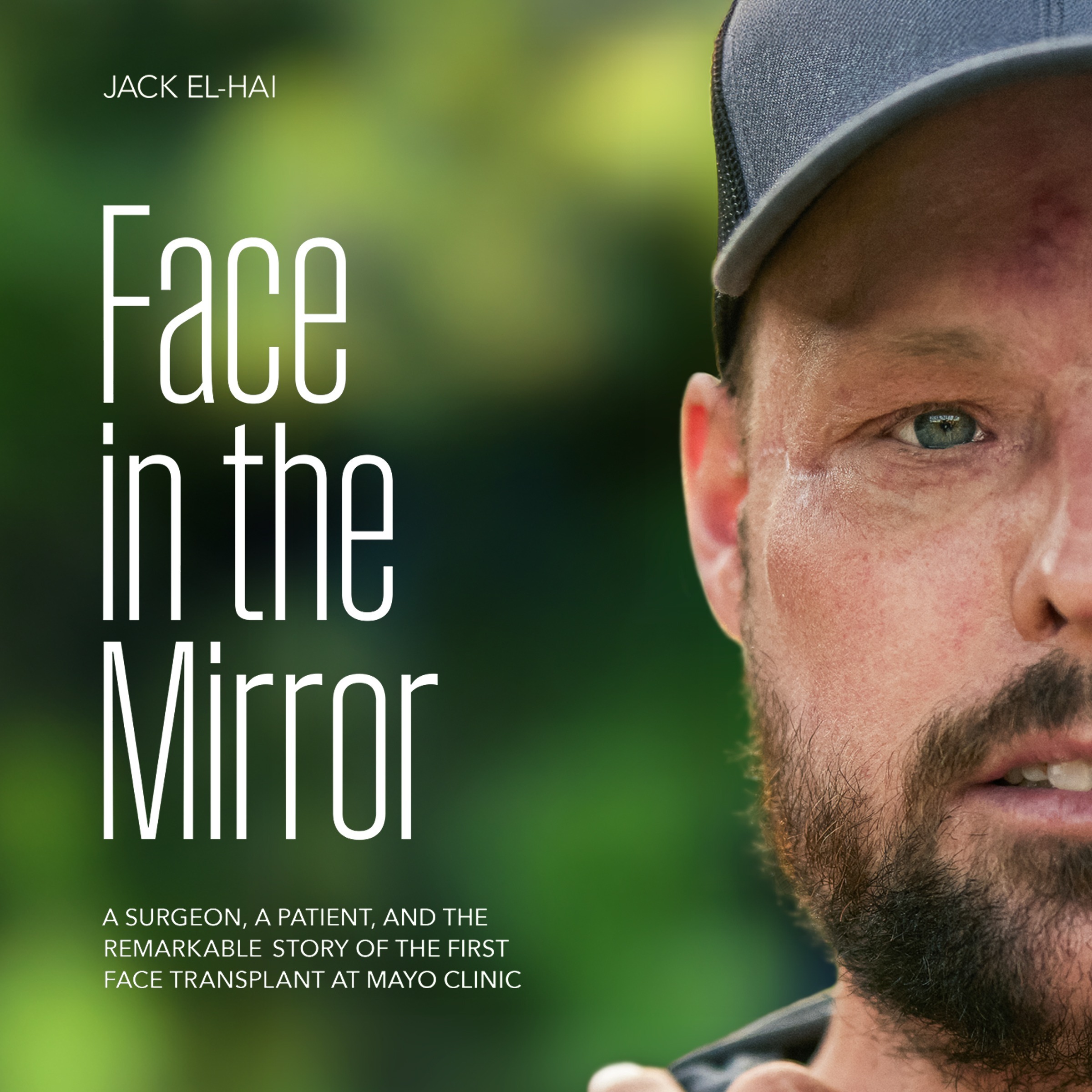
We're excited to share an audio preview of our new book, Face in the Mirror: A Surgeon, a Patient, and the Remarkable Story of the First Face Transplant at Mayo Clinic.
You can order your print copy of the book from Mayo Clinic Press, or keep listening to the audiobook on Audible, Libro.fm, Audiobooks.com, or wherever you get your audiobooks.
Advertising Inquiries: https://redcircle.com/brands
Privacy & Opt-Out: https://redcircle.com/privacy
A Surgeon, a Patient, and the Remarkable Story of the First Face Transplant at Mayo Clinic
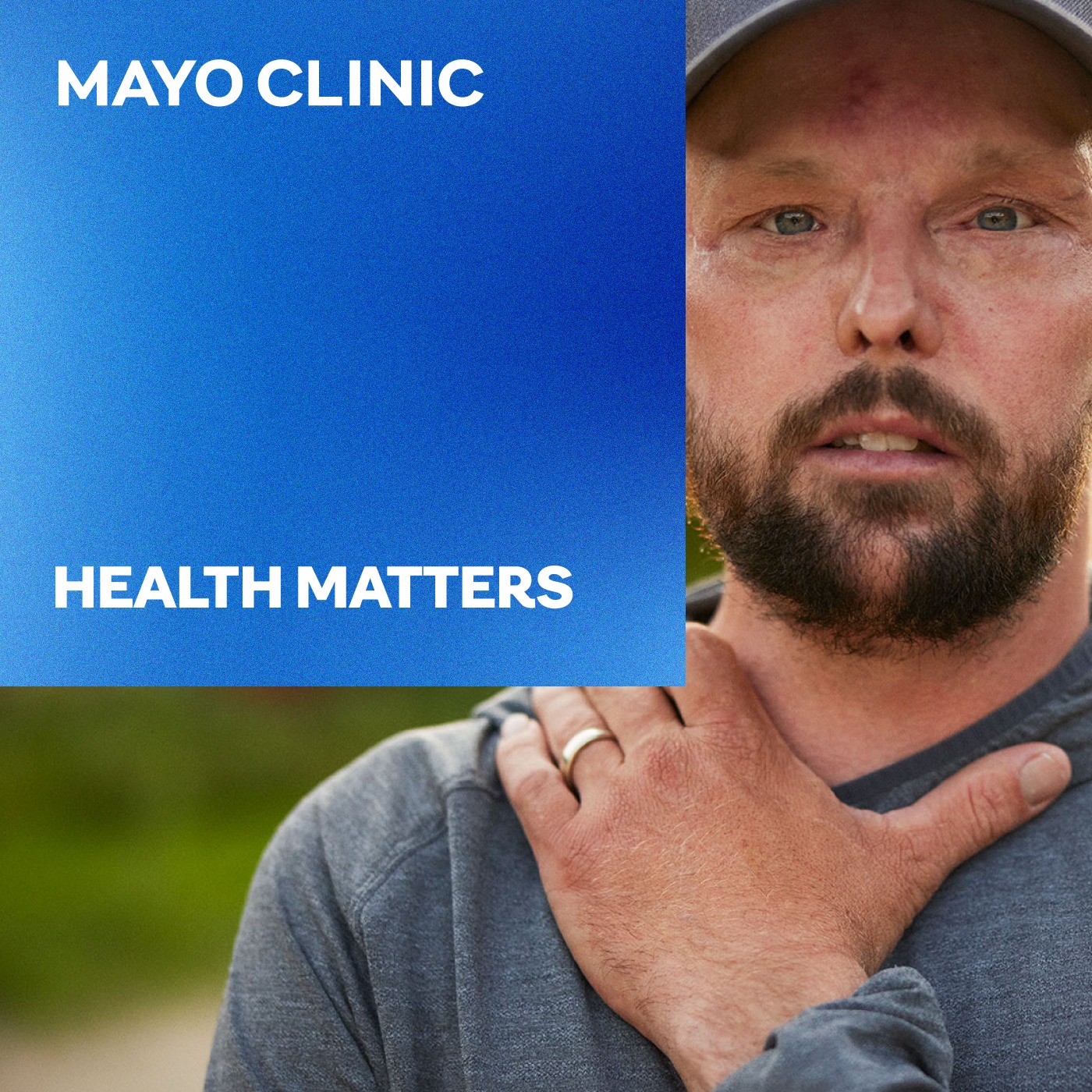
The first face transplant was performed in 2005. Since then, only about 50 face transplants have been done in the entire world. It’s a complex surgery that requires all the expertise a surgeon can bring to the table. It can also be life-changing for patients.
On this episode of Health Matters, we’ve got two amazing guests: Dr. Samir Mardini, a facial plastic surgeon who performed Mayo Clinic’s first-ever face transplant, and Andy Sandness, the recipient of that transplant.
To learn more about Andy and Dr. Mardini's story, purchase your copy of Face in the Mirror...
The Skincare Secrets Doctors DO Want You to Know: Reclaim Skin Health, Rejuvenation and Vibrance

In today's world, skincare is largely focused on aesthetics, but what about its impact on our physical well-being?
In this episode of Health Matters, Dr. Saranya Wyles joins us to discuss the vital functions of our skin, tips for maintaining its health, and the latest advancements in skin healing and rejuvenation.
Sign up to receive Mayo Clinic Press emails.
Find us online at Mayo Clinic Press for more health and wellness articles, podcasts and books.
Do you have feedback, questions or topic suggestions? Email us at mcppodcasts@mayo.edu.
...
Changing the Future of Your Kidneys: PKD and Beyond

When was the last time you thought about your kidney? If you’re a healthy individual, maybe not so much. But this unassuming organ is vital—and kidney diseases, like polycystic kidney disease, can put people at serious risk of health complications.
On this episode of Health Matters, we’re talking with Dr. Fouad Chebib to sing the praises of the small but mighty kidney, learn how to maintain kidney health, and gain a deeper understanding of polycystic kidney disease, also known as PKD.
Sign up to receive Mayo Clinic Press emails.
Find us onli...
When Do I Need a Tetanus Vaccine?

Remember the childhood warning about rusty nails and tetanus? Turns out, there’s more to the story.
On this episode of Health Matters, Dr. Priya Sampathkumar unpacks the truth about tetanus—how it spreads, the signs of infection, and why staying up to date on your vaccines is crucial.
Find us online at Mayo Clinic Press for more health and wellness articles, podcasts and books.
Do you have feedback, questions or topic suggestions? Email us at mcppodcasts@mayo.edu.
Advertising Inquiries: https://redcircle.com/brands
Privacy & Opt-Out: https://redcirc...
Tomorrow's Cure: AI Powered Stethoscopes Improve Access to Heart Care

We've got a special episode for you today from our friends at Tomorrow's Cure! Tomorrow's Cure is a Mayo Clinic podcast that is bringing the future of healthcare to the present.
The stethoscope, one of the most iconic symbols of medicine, was invented over 200 years ago. Today, artificial intelligence is revolutionizing this essential tool, empowering doctors to detect cardiac disease at its earliest stages with greater precision during routine visits. The podcast episode features Demilade Adedinsewo, M.B., Ch.B., cardiologist at Mayo Clinic and Jason Bellet, co-founder of Eko Health.
Find us online at May...
Beyond Ozempic: The GLP-1 Boom

Ozempic. Wegovy. Mounjaro. Zepbound. You’ve probably heard the name of one of these drugs in the past few years—maybe you’ve even thought about taking them. Every day, more Americans are taking these drugs known as GLP-1s, either for chronic conditions like diabetes or, increasingly, for weight loss. So do these drugs deliver on the promise of easy weight loss? And are they right for everyone? This episode, we talk with Mayo Clinic dietitian and host of Mayo Clinic On Nutrition Tara Schmidt about the drugs that have taken weight loss culture by storm.
Find u...
I Have Breast Cancer - Now What?

Life after a breast cancer diagnosis is rarely the same as it was before. Breast cancer changes your relationship with your body. It changes your relationship with the people around you. It changes life’s daily rhythms. But that doesn’t mean life can’t be richer, more meaningful and perhaps even healthier. Living with breast cancer is about more than just surviving. It’s about thriving and continuing to find purpose and joy.
On this episode of Heath Matters, we sit down with Dr. Tufia Haddad, author of Beyond Breast Cancer, to talk about what comes next aft...
Pregnancy: The Heart's First Stress Test

Cardiovascular disease accounts for more than a fourth of pregnancy-related deaths in the U.S. The good news is that doctors believe the vast majority of those are entirely avoidable.
On this episode of Health Matters, Dr. Niti Aggarwal shares how heart issues during pregnancy aren't just a temporary condition for nine months -- instead, they're actually a predictor of heart health for the rest of your life.
Find us online at Mayo Clinic Press for more health and wellness articles, podcasts and books.
Do you have feedback, questions or topic suggestions? Email us...
Facts on Fertility, Part II

If you're struggling with infertility, what are your options for available treatment?
On this episode of Health Matters, Dr. Zaraq Khan returns to share the details on IUI, IVF, ICSI, third party reproduction, and more. He'll also break down the myth of cyropreservation, and explain newer experimental technologies -- from ovary and uterine transplants to the use of mouse models for harvesting and developing ovarian tissue.
You can purchase Dr. Khan's book, Mayo Clinic Guide to Fertility and Conception, Second Edition, on Mayo Clinic Press.
Find us online at Mayo Clinic Press for more h...
Facts on Fertility, Part 1

One out of eight couples in the United States experience difficulty getting pregnant. A large and often unspoken contributor to that statistic? Male factor infertility.
On this episode of Health Matters, Dr. Zaraq Khan breaks down all the necessary components to create a pregnancy, and shares his thoughts on how infertility -- generally a couple's issue -- has become a woman's social burden to carry.
Join us next week for part 2 of our fertility discussion, where we'll be talking about assisted reproduction, fertility preservation options, and more!
You can purchase Dr. Khan's book...
How to Sleep Better

Sleep: it's complicated. Our sleep quality is at the root of countless health issues. So, how do we change our habits?
On this episode of Health Matters, we're speaking with Dr. Timothy Morgenthaler, a sleep medicine specialist and the director of Mayo Clinic’s Center for Sleep Medicine, about how to sleep better. Dr. Morgenthaler shares tips about maintaining a consistent sleep schedule and optimizing the sleep environment, and when to see a medical professional for sleep issues.
Order Dr. Morgenthaler's book, Mayo Clinic Guide to Better Sleep, on Mayo Clinic Press today.
Fi...
Feel the Burn? GERD and Acid Reflux

Heartburn, acid reflux, GERD—what’s the real difference? In this episode of Health Matters, gastroenterologist Dr. Dawn Francis breaks it down, explaining why an estimated 1 in 5 Americans experience frequent reflux symptoms. We dive into how diet factors into your gastro health, the mechanics of the digestive system, and the lifestyle changes you can make to get alleviate your reflux symptoms.
Find us online at Mayo Clinic Press for more health and wellness articles, podcasts and books.
Do you have feedback, questions or topic suggestions? Email us at mcppodcasts@mayo.edu.
Advertising Inquiries...
Supplements, Simplified

1 in 5 people use herbs and other dietary supplements to improve their health and well being. But with all the conflicting information out there, it can be hard to tell: Are supplements good for you, or not?
On this episode of Health Matters, Dr. Brent Bauer talks about the possible benefits and pitfalls of taking supplements, and how to go about choosing the best products for you.
Buy Dr. Bauer's new book, Mayo Clinic Guide to Holistic Health, today.
Find us online at Mayo Clinic Press for more health and wellness articles, podcasts and boo...
How the News Rewires Your Brain

Constantly tuning into the news can feel stressful, and sometimes... inescapable. Even when you turn off your TV, you'll still find out what's going on - online, through friends, or through social media. So how can we find ways to be calm when it feels like we're constantly being bombarded?
On this episode of Health Matters, clinical psychologist Adam S. Anderson talks about how our bodies are wired to seek information, why negative, sensationalist news can feel addictive, and how we can adjust our relationship to the news by implementing healthy habits.
Find us online...
Who's the Queen of Hemorrhoids?

Awkward. Taboo. The stuff of juvenile comedy. That's how many people would describe hemorrhoids, if they even talk about them at all. And if the emotional discomfort isn't enough, they're also pretty physically uncomfortable.
But for something we don't talk about, a LOT of us experience them. One in two people will experience a hemorrhoid by the time they reach 50.
On this episode of Health Matters, gastroenterologist Dr. Sarah Umar — also known to her Mayo Clinic patients as the Queen of Hemorrhoids — joins us to answer all our burning questions about hemorrhoids.
Find us o...
Is My Dog or Cat Improving My Health?

Pets are close to our hearts — and they’re good for our hearts. Having a pet is linked to a whole host of cardiovascular benefits, from reduced blood pressure to increased physical activity. So snuggle up with your pup, and let’s learn how caring for our animals helps us care for ourselves, too.
On this episode of Health Matters, cardiologist Dr. Francisco Lopez-Jimenez talks with us about the connection between cardiovascular health and your furry, feathered or fanged friend.
Find us online at Mayo Clinic Press for more health and wellness articles, podcasts and books.<...
What Happens If an Astronaut Gets Sick in Space?

Space: the final medical frontier. This is the interview with Dr. Jan Stepanek. His continuing mission: to explore strange new medicine; to seek out new treatment and new conditions; to boldly treat where no doctor has treated before.
Or in other words, on this episode of Health Matters, we talk with aerospace medicine specialist Dr. Jan Stepanek about what medicine looks like in outer space. Buckle up, strap yourself in, and let's go the stars!
Find us online at Mayo Clinic Press for more health and wellness articles, podcasts and books.
Do you ha...
How Much Sun Is Too Much Sun?

Nothing says summer like fun in the sun. But that can also give us cancer! In fact, skin cancer is the most common form of cancer in the U.S. — one in every five Americans will develop it. So how do we enjoy the sun, soak up its benefits, and stay safe?
On this episode of Health Matters, we talk with dermatologist Dr. Naiara Sbroggio Barbosa about Vitamin D, choosing the right sunscreen, and how and when to soak up those summer rays.
Find us online at Mayo Clinic Press for more health and wellness arti...
Should I Be Signing Up for a Polar Bear Plunge?

Sweating. Freezing. Sweating. Freezing. That's the “nordic cycle,” or alternating between a sauna and cold water. More spas are offering both hot and cold therapies as part of their services, and at-home sauna tents and ice baths are becoming more and more popular. But how beneficial are these methods of extreme temperature exposure for your health? And are they always safe?
On this episode of Health Matters, we talk with sports medicine specialist Dr. Amy Beacom about the sweating, the shivering and whether this should be part of your routine.
Find us online at Mayo Clini...
Who's Afraid of Brain-Eating Amoebas?

In 2023, both a toddler in Arkansas and a swimmer in Texas died from the infection of a brain-eating amoeba, Naegleria fowleri, likely contracted from local water sources. ""Brain-eating amoebas"" is a scary headline that sounds like something out of the Twilight Zone, but just how worried should we be? And how serious are the ramifications of infection? (Spoiler: They're pretty darn serious.)
On this episode of Heath Matters, we sit down with Dr. Bobbi Pritt to talk about brain-eating amoebas, what they are, how concerned we should be about them, and ways to avoid infection.
F...
Is This ADHD?

Distraction runs rampant in our society — we can all relate. But when you have ADHD, navigating a chaotic world can be especially challenging. And adult ADHD is on the rise. During the pandemic, diagnoses and prescriptions for ADHD in adults increased significantly. So what’s driving this increase in diagnoses? And how do you tell if you yourself have ADHD, or are experiencing a typical level of distraction?
On this episode of Health Matters, family physician Dr. Robert Wilfahrt joins us to talk about all things ADHD.
Find us online at Mayo Clinic Press for more...
Health Matters Trailer

Join host Kristen Meinzer in conversation with Mayo Clinic’s leading medical experts as she asks all the questions you’re eager to (or maybe even afraid to) ask, letting curiosity lead the way. Wondering if you might have ADHD? Or how your pet affects your health? Be part of an informative—and fun—discussion about one of the most important topics: your health.
Advertising Inquiries: https://redcircle.com/brands
Privacy & Opt-Out: https://redcircle.com/privacy
Introducing: Mayo Clinic Health Matters

We're excited to introduce our new show, Health Matters, where we're talking with leading medical experts from Mayo Clinic about their insights and opinions on the latest health and wellness subjects and information.
New episodes starting August 6 right here in your feed.
Find us online at Mayo Clinic Press for more health and wellness articles, podcasts and books.
Do you have feedback, questions or topic suggestions? Email us at mcppodcasts@mayo.edu.
Advertising Inquiries: https://redcircle.com/brands
Privacy & Opt-Out: https://redcircle.com/privacy
Ask the Mayo Mom: Baby’s First Bites
When an infant starts experimenting with solid foods, their whole world expands. Like breast milk and formula, food is fuel for your body and a vehicle for love. But it is also a cornerstone of culture, defining a shared national identity. It provides entertainment and spreads joy. And it helps us understand the world and our place in it. On this episode of Ask the Mayo Mom, host Dr. Angela Mattke talks to Dr. Leslie Kummer, a primary care pediatrician with special interest in breastfeeding medicine, about beginning the weaning process, safely introducing kids to the wonderful world of food...
Ask the Mayo Mom: The eyes of a child

The retina is a thin layer of tissues, cells, and nerves that line the back wall inside the eye. This layer has millions of light sensing cells that receive and organize visual information according to the Mayo Clinic.
On this Ask the Mayo Mom edition of the Q&A podcast, host Dr. Angela Mattke is joined by Dr. Brittni Scruggs, an ophthalmologist at Mayo Clinic Children’s Center. Dr. Scruggs is a physician, surgeon, and scientist with a research laboratory at Mayo Clinic studying gene therapy and stem cell therapy for retinal degenerations, including for children.
Sh...
Advancing treatments for acute myeloid leukemia

Acute myeloid leukemia (AML), also called acute myelogenous leukemia, is a cancer of the blood and bone marrow, the spongy tissue inside bones where blood cells are made. The disease progresses rapidly, affecting a group of white blood cells called myeloid cells, which normally develop into mature red blood cells, white blood cells and platelets.
"There are acute and chronic leukemias, explains Dr. James Foran, an oncologist at Mayo Clinic. "The chronic ones tend to happen slowly over many years. You can watch it for a period of time until it really becomes active. The acute leukemias c...
